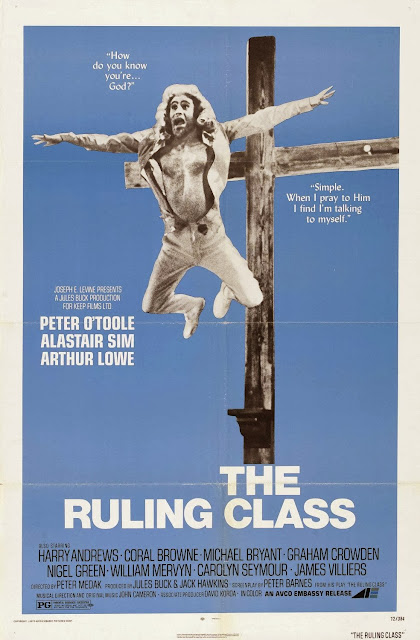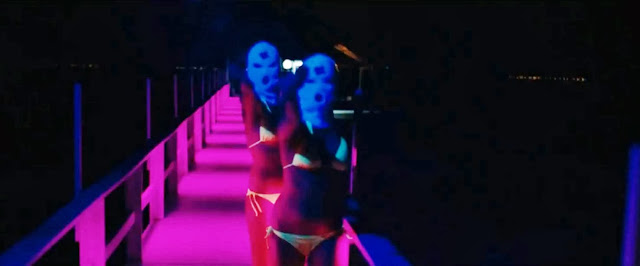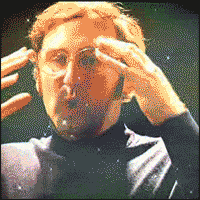It's sad, so sad. It's a sad sad situation. Each year that light that was the Hollywood Golden Age glows a little dimmer as the stars that gave it strength pass away. And as the gods would have it, today we learnt that we lost two undeniably iconic figures of the silver screen. So I decided it would be fitting to eulogize Joan Fontaine and Peter O'Toole by looking at the last films of theirs that I watched, my own fitting farewell.
The feels.
Let's get this started.
The Ruling Class (1972) - dir. Peter Medak
Without a doubt the role which will forever define Peter O'Toole's immortal career on stage and screen is the eponymous Lawrence of Arabia. However this was but one of eight performances for which he was nominated the Academy Award for Best Actor. In 1972 garnered critical acclaim for his role in what is perhaps the most insane film I have ever watched. And that is speaking from someone that sat through El Topo.
A masterpiece of sardonic farce, a biting critique of the archaic British 'ruling class' society as it clashes with modernity, this film however will always have a special place in my mind for being just plain nuts. Opening with the death of the reigning Earl of Gurney by auto erotic asphyxiation (clad in hunting regalia and a hot pink tutu no less!), the earldom is inherited by schizophrenic Jack Gurney, a man who literally thinks he is god.
Yep, nuts. And the film doesn't stop there. Thanks to a tour de force from O'Toole that really dials the notch up to 11, the delusions of Jack Gurney are as vivid on screen as they would be on stage (which the film was adapted from). The film features spontaneous musical moments, hallucinations, murder, and spouts of dialogue which to this day remain among my favorites.
It's your negative "insinuendos." Insinuendo is insinuation towards innuendo brought on by increased negativism out of a negative reaction to your father's positivism.But wait, there's more! After a climatic scene in which Gurney's god delusion is shattered through electro shock therapy, the 'cured' man proclaims that "I'm Jack, I'm Jack" In truth, he now thinks he is Jack the Ripper.
Acting, look it up.
Beyond being so insane, I really connected with what the film was essentially parodying, that is the ridiculous world of British upper class and peerage. When Gurney's extended family realize the extent of his delusions, they conspire to have him committed. However this is thwarted when the court appointed psychiatrist is, like Gurney, an Old Etonian. In front of a House of Lords (which has more in common with a House of Horrors), Jack (the Ripper) Gurney proclaims that the elite have forgotten to punish, a need for a return to capital and corporal punish. Despite being the ravings of a lunatic, he is applauded, a contrast to his god delusion where society saw him for his insanity.
Look I didn't really understand everything this movie was trying to push, and there is still a discussion as to whether this blatantly theatrical film should even be considered as a film. However Peter O'Toole with those piercing eyes just steals the show, displaying all the talents of a great actor in it's three hours. If you wish to see a film that mocks the peerage and is insane for the sake of it, give it a try. 7.5/10.
I hope you're tears aren't preventing you from carrying on, have a moment with your emotions before I continue on. Go ahead, put on some Adele.
All right let's continue.
Rebecca (1940) - dir. Alfred Hitchcock
"At age 108, flying around the stage in Peter Pan, as a result of my sister cutting the wires. Olivia has always said I was first at everything – I got married first, got an Academy Award first, had a child first. If I die, she'll be furious, because again I'll have got there first!"Whilst I was a greater fan of her sister's films, Hitchcock's Rebecca perhaps is my favorite film from either sibling's body of work. A Gothic masterpiece and classic Hitchcock , the film stakes its claim as a classic through it's telling of a traditional horror story but avoiding all conventions of the genre to build suspense and atmosphere.
Fontaine plays an unnamed girl, who after a whirlwind romance in Monaco falls in love with the widowed aristocrat Maxim de Winter, played by the ever charming Laurence Olivier. Marriage follows, and the 2nd "Mrs. de Winter" returns to her husband's grand estate Manderley. It is within the walls of Manderley that the horror begins, not with a ghost, but the haunting of a memory. The invisible specter of the deceased first Mrs. Rebecca de Winter hangs over the home like a fog. The cold housekeeper Mrs. Danvers, who holds an unhealthy obsession over Rebecca, maintain's her presence with impeccable detail, her room remains untouched, the portraits overbearing and omnipresent. The new wife is equally ostracized by her new husband, who seems to still be in love with Rebecca, and the poison surrounding Manderley beings to send her into depression and madness.
This film is phenomenal for its ability to create suspense, tension and fear without the use of traditional horror tropes. The brooding cinematography, Gothic surroundings of Manderley and icy presence of Mrs. Danvers just breed an atmosphere of foreboding evil. In my favorite scene, Fontaine's character is driven slowly towards the brink due to the neglect of Maxim and the incessant reminders of the woman she replaced. Mrs. Danvers, in cold manipulation, urges her to give in to darkness. Opening a window she whispers "Look down there. It's easy, isn't it? Why don't you? Why don't you? Go on. Go on. Don't be afraid...". It's terrifying, and I have yet to see a horror film create such a chilling scene with such a deft touch.
Rebecca is a masterpiece of the horror genre, and undeniably one of Hitchcock's best films. Though Joan Fontaine would go on to win an Oscar for her leading role in Hitchcock's film Suspicion, it was this film for which I will forever hold Fontaine in such high esteem. Her naive traipse into romance and susceptibility to the haunting memory of Rebecca de Winter. An effervescent presence, she will be missed. 9/10




























































